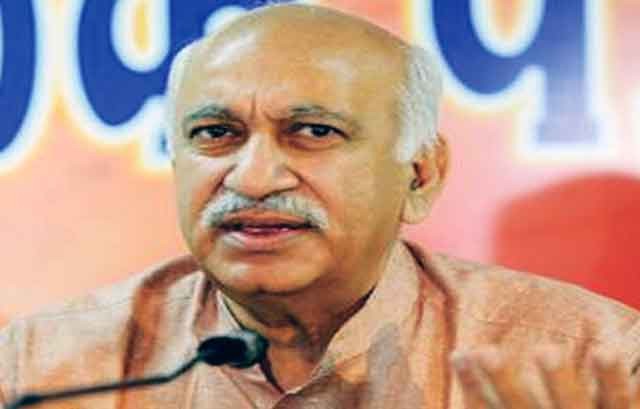
A US-based journalist has accused editor-turned-politician MJ Akbar of raping her over two decades ago. Akbar has dismissed the allegations as false, his lawyer told The Washington Post, which has published the first person account of Pallavi Gogoi, an editor at the National Public Radio (NPR).
Pallavi Gogoi writes that MJ Akbar "a brilliant journalist" was the Editor-in-Chief at The Asian Age and "used his position to prey on me". Gogoi writes she was a "22-year-old star-struck journalist" when she joined the newspaper.
She writes her head started spinning when scores of women made allegations of sexual harassment against Akbar.
Akbar had to resign from the Union cabinet following the chorus for his resignation in the wake of MeToo allegations.
Gogoi writes, "I was mesmerized by his use of language, his turns of phrase, wishing that I could write like he did. So I took all the verbal abuse. After all, I was learning from the best. Or so I thought."
At 23 she became the editor of the op-ed page, but she ended up paying a "very big price" for the break, she says.
Recounting the day when she had gone to show him the op-ed page, she writes, "He applauded my effort and suddenly lunged to kiss me. I reeled. I emerged from the office, red-faced, confused, ashamed, destroyed."
She narrated the incident to a fellow colleague.
The second incident occurred a few months later, she was summoned to Bombay to help launch a magazine.
She writes, Akbar called her to his room at the fancy Taj hotel and he again came close to kiss her. "I fought him and pushed him away. He scratched my face as I ran away, tears streaming down. That evening, I explained the scratches to a friend by telling her I had slipped and fallen at the hotel," she writes.
She says when she got back to Delhi, a "livid" Akbar threatened to kick her out of the job "if I resisted him again". Gogoi says she did not quit the paper.
The third incident happened in Jaipur, she writes. Gogoi says Akbar asked her to come and discuss the story in his hotel in Jaipur. Gogoi had gone there to cover a story of a young couple who were hanged by members of the village because the lovers were from different castes.
"In his hotel room, even though I fought him, he was physically more powerful. He ripped off my clothes and raped me. Instead of reporting him to the police, I was filled with shame. I didn’t tell anyone about this then. Would anyone have believed me? I blamed myself. Why did I go to the hotel room?" she writes.
Gogoi laments the fact that Akbar's grip over her got "tighter" after the first incident. "I stopped fighting his advances because I felt so helpless. He continued to coerce me. For a few months, he continued to defile me sexually, verbally, emotionally. He would burst into loud rages in the newsroom if he saw me talking to male colleagues my own age. It was frightening," she writes.
In her piece, Gogoi says that she cannot explain how Akbar got such a hold over her and how she "succumbed".
The ordeal did not end there. When Gogoi moved to the London office, Akbar, upon reaching there, was enraged at her speaking to a male colleague. She says he "hit me and went on a rampage, throwing things from the desk at me — a pair of scissors, a paperweight, whatever he could get his hands on".
She says she did bring up Akbar's name as she believed he was above the law and "justice doesn’t apply to him".
She concludes her piece by saying: "But I am writing this because I know what it is like to be victimized by powerful men like Akbar. I am writing this to support the many women who have come out to tell their truth. I am writing this for my teenage daughter and son. So they know to fight back when anyone victimizes them. So they know never to victimize anyone."
Akbar has filed a criminal defamation case in a Delhi court against Priya Ramani, who has accused him of sexually harassing her.


.jpeg)

